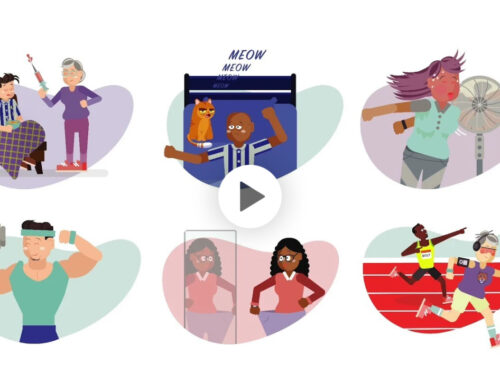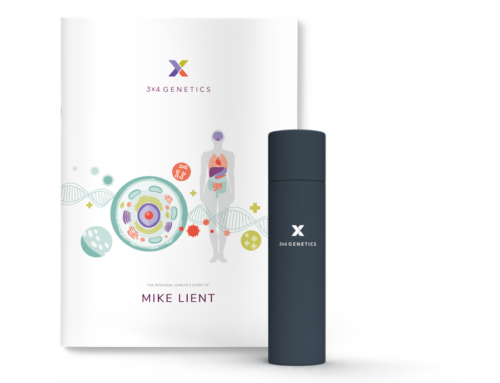Understanding our genetics is the key to personalized care, lifestyle choices that fit how your body works, and long-term wellness. But the science behind genes, DNA, and chromosomes takes some time to learn, and sometimes the terminology can get a bit scientific. Here are ten genetic terms made easy.
DNA (Deoxyribonucleic Acid)
DNA is what makes up the basics of our cells and what contains our hereditary material. It’s formed from four chemical bases — adenine (A), guanine (G), cytosine (C), and thymine (T) — in different combinations, and it’s these various combinations that form the building blocks of every organism on earth. Those four chemicals pair up to form the rungs of DNA’s double helix.
Genome
Genes are made up of DNA, and not only carry traits but impact functionality throughout the body. Each person has between 20,000 and 25,000 genes, and the entire set of a person’s genes is called a genome. The Human Genome Project, completed in 2003, mapped every gene in the human body, how they’re structured in our body.
Chromosome
Our genes are stored in our chromosomes, which are located in the nucleus of our cells. We have 23 pairs of chromosomes, and it’s critical that these pairs replicate precisely in order for a human to be healthy. Defective chromosomes can cause disease, and not having enough chromosomes can cause someone to not develop correctly.
Genetic Testing
A genetic test maps out a person’s individual genome, and identifies genetic variations that individual may have. These variants can give insight into how a person’s cells and systems function, how they process certain nutrients, what kind of exercise or activities they’re best suited for, and more. Genetic tests are conducted using either a cheek swab, saliva, or blood.
Heritability
Heritability measures how much a person’s genes contribute to their traits and how it has been passed down through the family. High heritability means that a person’s or a population’s differences are caused mostly by their genes. Low heritability means that differences in traits are only partially caused by genetic factors.
Gene Variation
99.9% of our genetic code is the same, but that .1% of genes carries variabilities that impact a body’s functionality. If genes are made up of the four different chemical bases in DNA, a variation happens when a DNA “letter” is inserted in the chain, deleted from the chain, or when another DNA “letter” is substituted into the chain.
Genetic Diseases
Genetic diseases are caused by variations in genetic code that result in a disorder. The variation can be found in one instance or multiple instances, and can either be inherited or due to environmental causes. Cystic fibrosis, sickle cell anemia, Down’s Syndrome, and even obesity are genetic diseases. The intensity of that genetic disease depends on penetrance: High-penetrance variations have a high chance of impacting someone’s health, while low-penetrance variants are likely to have less of an impact than lifestyle choice or environment.
Genetics Creates Personalized Healthcare
If you take one thing away from these definitions, it’s that our uniqueness isn’t just skin deep, but that it goes right down to the very ingredients of our cells. If each of us has all different types of combinations of chemicals that make up our genes, some of which have variations that alter how our cells and systems work, or that process the foods we eat and the environment we’re in differently — then why is most healthcare based on one-size-fits-all recommendations?
Here at Culinary Archeology, we value each person’s individuality, and know that individuality is the key to personalized healthcare for all.
Ready to start your personalized health journey?
Purchase a genetic test or text your questions to 323-676-1879.




